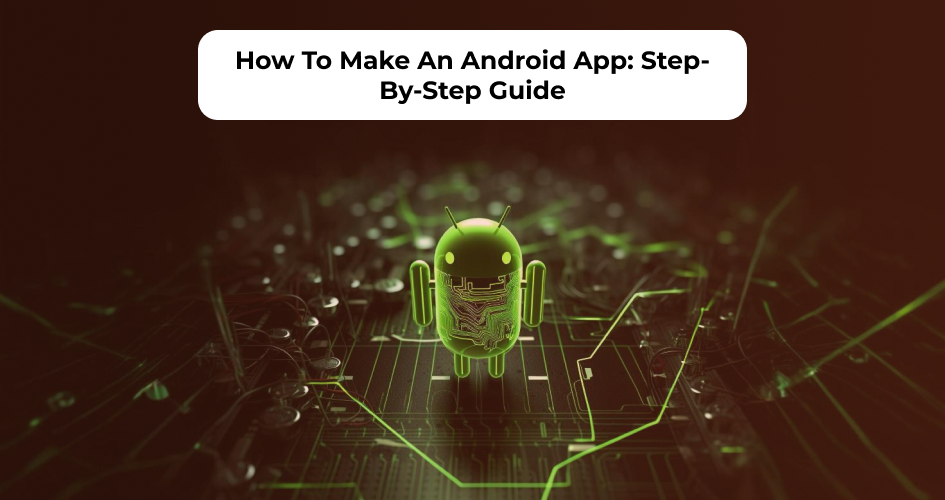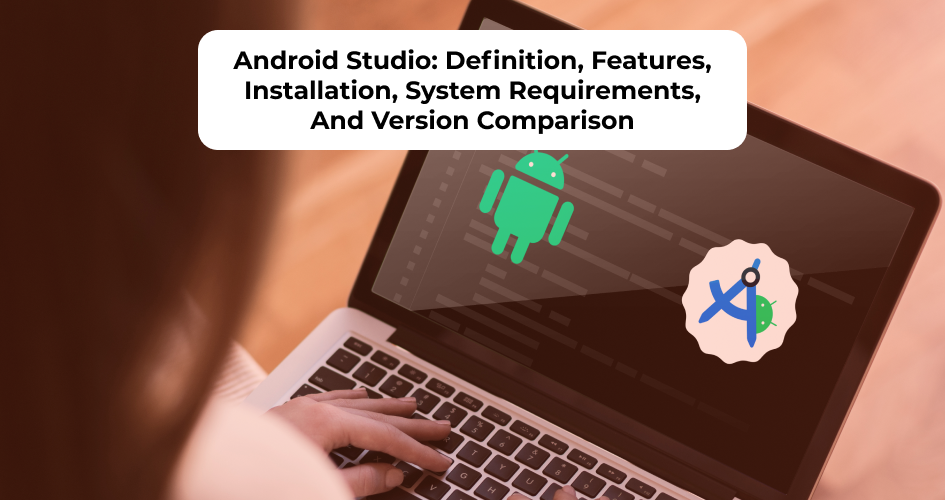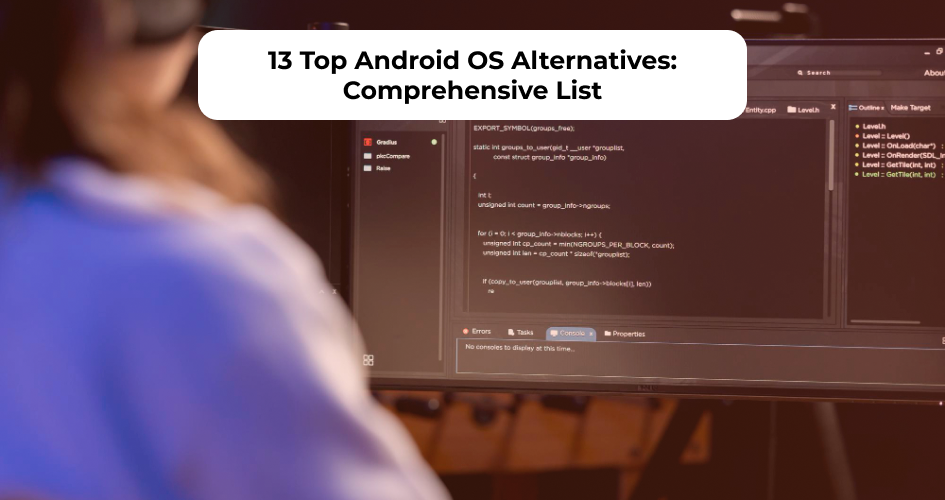Developing Android apps is a lucrative business, but one crucial aspect that demands careful consideration before building it is the Android app development cost involved.
The cost of Android app development can vary depending on many factors, but it’s usually around $5,000 to $500,000 and can be more if the app is really complex.
Therefore, understanding the factors that influence your Android development cost is essential for budgeting effectively.
This article will explore various factors that contribute to the development prices, as well as break down how much an Android project can cost.
In the end, you’ll also find several tips to reduce the cost while maintaining quality.
How Much Does It Cost to Develop an Android App?
The cost of developing an Android app typically ranges from $5,000 to $500,000 or more, depending on the factors mentioned earlier, including app complexity and design requirements.
Simple apps with basic features and functionalities may cost between $5,000 and $20,000 to develop, while more complex apps with advanced features, custom integrations, and intricate design elements can cost anywhere from $50,000 to $500,000 or more.
Besides the five factors mentioned above, the development cost may also vary based on the geographic location of the development team.
The rates are typically higher in regions such as North America, Western Europe, or Australia, compared to regions like Eastern Europe, Asia, or Latin America.
Factors Affecting Android App Development Cost
The Android app cost depends on various factors.
Understanding the factors influencing it is crucial for effective project planning, budgeting, and resource allocation.
In this section, let’s explore these factors in detail to provide insights into what drives the costs of Android app development and how you can calculate these considerations to build your app within budget constraints.
The Complexity of the App
The complexity of an app refers to the sophistication of its features, functionalities, and overall structure.
In terms of user interface complexity, here are several factors that can contribute to the overall complexity of the app:
- Number of screens
- Navigation patterns
- Interactive elements
- Visual effects
Apps with custom animations, complex layouts, and rich multimedia content tend to need more time and effort to design and implement, thus increasing development costs.
On the backend side, complex apps often involve the integration of various data sources, databases, third-party services, and APIs.
Implementing features like user authentication, real-time updates, and data synchronization will also add complexity to the development process, requiring additional expertise and resources.
Furthermore, the complexity of app logic and functionality plays a crucial role in determining development costs.
Apps with advanced features such as artificial intelligence, machine learning, augmented reality, or complex business logic require specialized skills and expertise to develop and maintain, which can contribute to higher development costs.
Design Requirements
Design requirements revolve around the visual and user experience aspects of an app, including its interface design, user interaction patterns, and branding elements.
These can significantly impact the cost of Android app development due to the level of customization, creativity, and attention to detail involved.
- The uniqueness of the app’s design. Custom animations or illustrations can make your app stand out, but it will lead to higher development costs.
- Accessibility and usability considerations. Ensuring that the app is accessible to users with disabilities and complies with usability best practices needs careful design planning and testing, which can influence the development costs.
- The need for responsive design. Designing interfaces that adapt seamlessly to different screen sizes, resolutions, and orientations needs meticulous planning, testing, and optimization, increasing the development time and resources.
Type of App
The type of app refers to its intended use case.
Different types of apps serve varying purposes and have unique requirements, which can significantly impact the Android app development price.
- Simple informational apps. These apps provide basic information or content such as news apps. They typically have minimal functionality, which can result in lower costs compared to more complex apps.
- E-Commerce apps. Developing E-Commerce apps involves integrating with backend systems, payment processors, and inventory management systems, which can increase development costs.
- Social networking apps. Building social networking apps can require higher costs as they need real-time updates and robust backend infrastructure with features like user profiles, notifications, and news feeds.
- Gaming apps. These apps are highly interactive, with complex graphics, animations, and gameplay mechanics, adding more cost to develop an Android app.
- Enterprise apps. They’re designed for internal use within organizations to streamline business processes. The cost will depend on the existing enterprise systems and compliance features.
- On-demand apps. These apps connect users with services or resources in real-time, such as ride-hailing apps and food delivery apps, which typically need features such as geolocation, real-time tracking, user ratings, and payment processing.
Development Time
Development time refers to the duration required to design, develop, test, and deploy an Android app from start to finish.
Longer development timelines result in increased labor costs, as developers and other team members need to dedicate more hours to the project.
Also, projects with tight deadlines may incur additional costs due to the need for overtime or expedited services.
App Development Team
The composition and expertise of the app development team affect development costs.
Highly skilled and experienced developers may command higher hourly rates, while larger development teams with specialized roles may increase overall project costs.
Some specialized roles usually consist of:
- Developers. The development team may include front-end developers who focus on user interface design and back-end developers who handle server-side logic and have expertise in mobile app development frameworks.
- Designers. These people are responsible for creating the visual elements, user interface, and user experience of the app.
- Quality assurance (QA) engineers. QA engineers are responsible for testing the app to identify bugs, defects, and usability issues before release, ensuring the app meets quality standards and user expectations.
- Project managers. Project managers oversee the app development process, manage project timelines, resources, and budgets, and ensure effective communication and coordination among team members.
- UI/UX specialists. The UI/UX team will conduct user research, gather feedback, iterate on designs, and implement best practices to enhance usability, accessibility, and engagement.
- DevOps engineers. These people focus on streamlining the app development process, automating workflows, and ensuring continuous integration and delivery (CI/CD) of software updates.
Android App Cost Breakdown
| Development complexity | Simple features | $5,000 – $20,000 |
| Moderate features | $20,000 – $50,000 | |
| Complex features | $50,000 or more | |
| Design requirements | Custom UI/UX design | $5,000 to $50,000 |
| Interactive components | $30,000 – $50,000 | |
| Branding elements | $3,000 – $25,000 | |
| Type of app | Simple informational apps | $15,000 – $40,000` |
| Gaming apps | $40,000 – $100,000 | |
| E-Commerce apps | $10,000 – $150,000 | |
| On-demand apps | $20,000 – $50,000 | |
| Development platform | Native app development | $30,000 – $100,000 |
| Hybrid app development | $20,000 – $80,000 |
Hidden Costs of Android App Development
While the upfront cost of Android app development is a significant consideration, being aware of potential hidden costs is also important.
These may arise throughout and after the development process.
Here are some common hidden costs associated with Android app development.
App Maintenance and Updates
After the initial development phase, ongoing maintenance and updates are necessary to keep the app running smoothly and up-to-date with the latest operating system versions, security patches, and trends.
Therefore, make sure you prepare an additional budget for regular maintenance tasks, bug fixes, and app updates.
Third-Party Integrations
Integrating third-party APIs, libraries, or services into your Android app can add complexity and costs.
While third-party integrations can improve app functionality and user experience, they may require licensing fees, subscription costs, or development efforts to implement and maintain.
Scalability and Performance Optimization
As your app grows in popularity and user base, you may encounter challenges that require optimization efforts, such as:
- Scaling infrastructure
- Optimizing server-side code
- Improving app performance to handle increased traffic and data volumes
Security and Compliance
Ensuring the security and compliance of your Android app with industry regulations is crucial for protecting user data and maintaining user trust.
Investing in security audits, compliance assessments, and implementing security measures usually involves additional costs.
However, these expenses are necessary to protect your app against potential vulnerabilities and breaches.
User Acquisition and Marketing
Launching your Android app successfully and acquiring users would need marketing efforts, advertising campaigns, app store optimization, and user acquisition strategies.
Allocating a budget for user acquisition and marketing activities is essential for promoting your app, increasing visibility, and attracting downloads.
Legal and Intellectual Property Protection
Protecting your app’s intellectual property rights, trademarks, and copyrights typically needs legal assistance and registration fees.
Ensuring compliance with licensing agreements, terms of service, and privacy policies is essential for mitigating legal risks and protecting your app’s reputation.
Strategies to Reduce Android App Development Costs
Reducing Android app development costs while maintaining quality and functionality is a common goal for many businesses.
Follow these tips to help minimize costs during the app development process.
Define Clear Requirements
Start by defining clear and detailed project requirements to avoid scope creep and unnecessary development repetitions.
Having a well-defined roadmap helps streamline the development process and reduces the risk of additional costs due to changes in requirements later on.
With clear requirements, you can also expect transparent and detailed costs from the get-go.
Choose the Right Development Approach
Consider using frameworks for hybrid app development like React Native, Flutter, or Xamarin to build your app for multiple platforms simultaneously.
With a cross-platform approach, you can reduce development time and costs by sharing a single codebase across Android and iOS platforms, in case you want to build an iOS app in the future.
Outsource Development to Offshore Teams
Offshore development teams are located in countries with lower labor costs compared to Western countries, making them a cost-effective solution for businesses seeking to minimize expenses.
They’re usually located in different time zones, which can facilitate round-the-clock development and help speed up the project timelines.
This distributed development model will also enable continuous progress on the project, reducing time-to-market and improving competitiveness.
Minimize Third-Party Integrations
Limit the number of third-party integrations and dependencies to reduce complexity and potential costs associated with licensing fees, maintenance, and updates.
Evaluate the importance of each integration and prioritize only the essential ones that provide significant value to your app.
Invest in Automated Testing and Quality Assurance
Automated testing reduces the need for manual testing efforts, hence saving time.
While the initial setup and configuration may need investment, the long-term benefits in efficiency, reduced testing cycles, and improved app quality outweigh the initial costs.
Automated testing tools also help developers identify and fix bugs early in the development process.
Detecting issues at the earliest stages of development, teams can address them proactively and minimize the risk of costly rework and delays later on.
FAQs
Here are frequently asked questions related to the Android app development cost.
How Long Does It Take to Build an Android App?
Building an Android app can take a few weeks for a simple app to a year for a complex app.
Therefore, it will depend on various factors such as the app’s complexity, features, design requirements, development approach, and team size.
Can I Create an App for Free?
While it’s technically possible to create a basic app for free using certain online app builders, building a professional-quality Android app typically involves some costs for the development tools, design assets, and app store fees.
How Can Intelivita Help You with Android App Development
Intelivita can assist you with Android app development by providing comprehensive development services tailored to your specific needs.
We specialize in crafting custom Android apps from scratch, whether you need a simple utility app or a complex enterprise-level solution.
Our team consists of experienced Android developers with expertise in Java, Kotlin, and other relevant technologies.
We also stay updated with the latest Android trends to ensure that your app is built using the most efficient development techniques.
More importantly, we prioritize transparent communication throughout the development process, keeping you informed at every stage.
With over 200 app owners having entrusted their projects to us, you can be confident in our ability to deliver exceptional results.
Partner with us for your Android app development needs and experience the difference firsthand!





